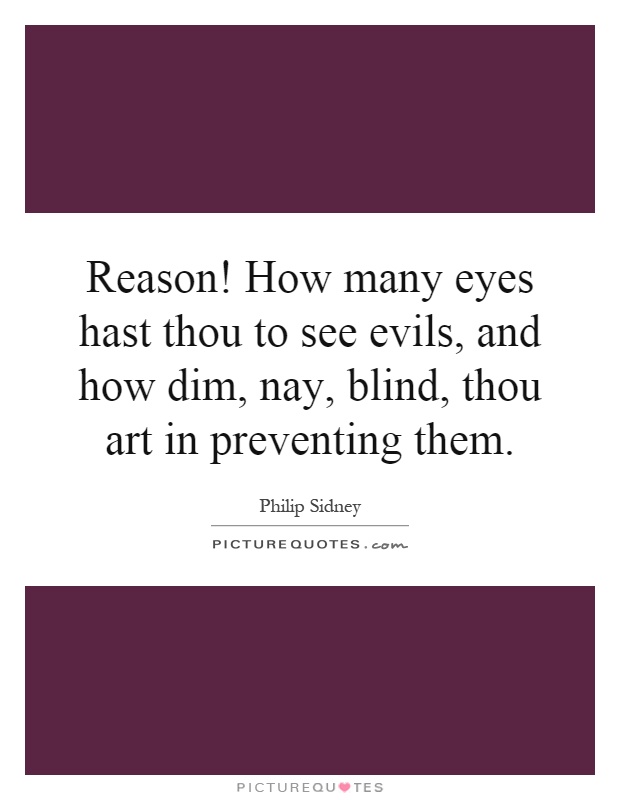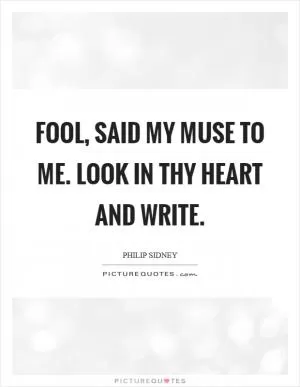Reason! How many eyes hast thou to see evils, and how dim, nay, blind, thou art in preventing them

Reason! How many eyes hast thou to see evils, and how dim, nay, blind, thou art in preventing them
Sir Philip Sidney, a prominent figure in the Elizabethan era, was a man of great intellect and wisdom. His works, including the famous "Astrophil and Stella" and "The Defence of Poesy," reflect his deep understanding of human nature and the world around him. In his writings, Sidney often explored the theme of reason and its limitations in preventing evil.The quote "Reason! How many eyes hast thou to see evils, and how dim, nay, blind, thou art in preventing them" encapsulates Sidney's belief that while reason may have the ability to perceive the evils in the world, it often falls short in actually preventing them. This idea is a recurring theme in Sidney's works, as he grappled with the complexities of human behavior and the limitations of rational thought.
Sidney believed that reason, while a powerful tool for understanding the world, is ultimately limited by human nature and the inherent flaws of the human mind. In his view, reason alone is not enough to prevent evil, as it is often clouded by personal biases, emotions, and desires. This is evident in his portrayal of characters in his works, who often struggle with their own inner conflicts and moral dilemmas.
One of Sidney's most famous works, "The Defence of Poesy," explores the role of art and literature in shaping human behavior and morality. In this work, Sidney argues that poetry and fiction have the power to move the soul and inspire virtuous actions, in a way that reason alone cannot. He believed that art has the ability to touch the emotions and stir the imagination, leading to a deeper understanding of the human experience.












 Friendship Quotes
Friendship Quotes Love Quotes
Love Quotes Life Quotes
Life Quotes Funny Quotes
Funny Quotes Motivational Quotes
Motivational Quotes Inspirational Quotes
Inspirational Quotes